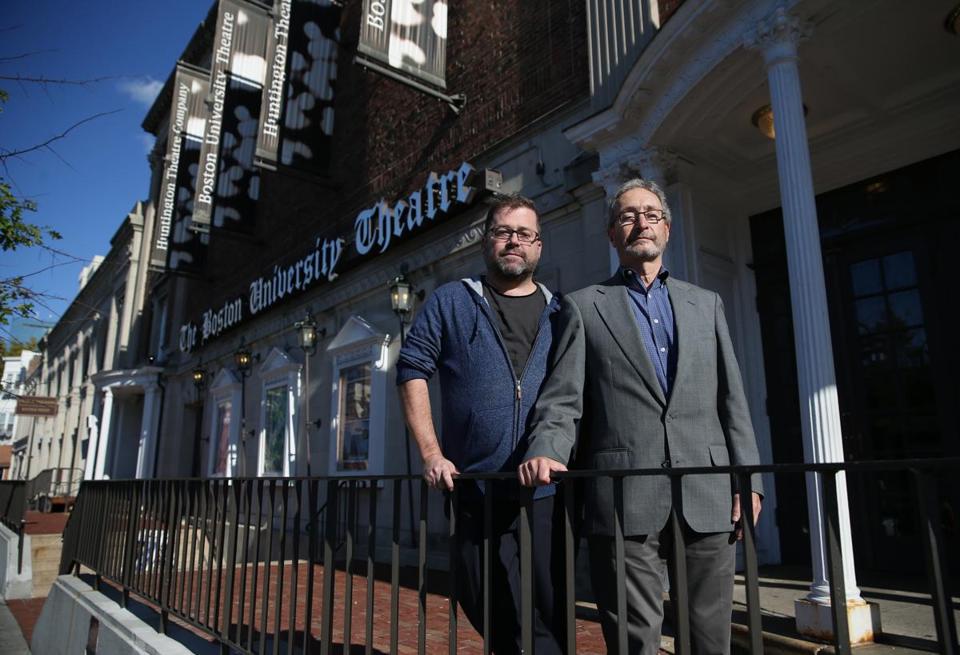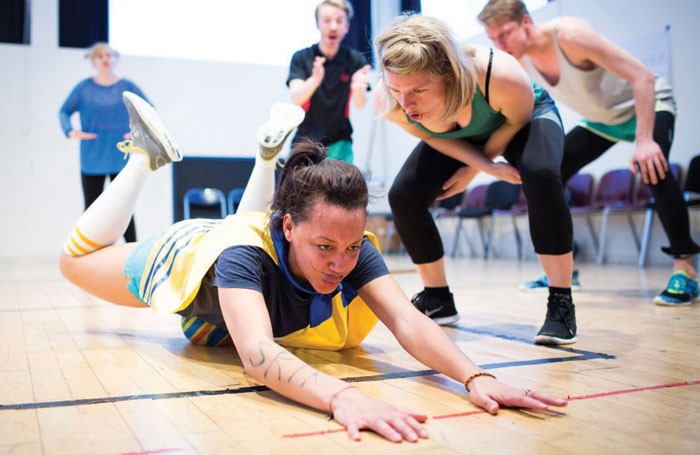available for purchase
at this time.
Link Roundup! – 10/9/15
Link Roundups feature articles and bits of internet goodness that our dramaturgy team digs up. If you find something you want to send our way, drop us a line on Facebook or Twitter!
♦♦♦♦♦

Huntington Theatre Company artistic director Peter DuBois, left, and managing director Michael Maso in front of the BU Theatre. Jonathan Wiggs/Globe Staff
The Boston Globe has a story about this week’s big news regarding the partnership between Boston University and the Huntington Theatre:
After 33 years, Boston University and the Huntington Theatre Company are parting ways, and the university is putting the BU Theatre up for sale, effective immediately. For the highly regarded Huntington, which just two years ago won a Tony Award for regional theater, the dissolution of the partnership with BU ushers in a period of uncertainty.
♦♦♦♦♦
Early career director Lucy Gram’s musings in HowlRound about life as an “emerging” artist are great:
Remember, as difficult as it is to make a life in the theatre, it is something I am lucky to be pursuing. What I am pursuing isn’t a career, or “success,” or a title. It’s an artistic practice. It’s a lens through which to look at life; a platform on which to ask questions about the world we know and create visions of worlds we have so far only imagined.
♦♦♦♦♦

Joel Horwood worked as dramaturg on Show 5 – A Series of Increasingly Impossible Acts at the Lyric Hammersmith, London. Photo: Helen Maybanks
The Stage has an article about dramaturgy in the UK and how British dramaturgy is similar and different to the practice in continental Europe:
Traditionally, the dramaturg’s role in our own theatre culture has been inextricably connected with the development of new writing. Unlike the Regietheatre tradition of modern German theatre, in which an emphasis on reconceptualising classic texts has resulted in a director-based dramaturgy, the British theatre dramaturg has focused ostensibly on artist – namely, playwright – development. It is a model that prioritises critical development above creative intervention.
♦♦♦♦♦
This Clyde Fitch Report essay questions the ideological worldviews of theatre audiences:
For all the conversations going on in the theater industry about diversity, social change and audience engagement, I’ve noticed recently how infrequent it is that I actually end up having a distinct, contrasting opinion to the foundational arguments of the plays I see and read. This reflection comes in part as a result of starting my own theater company, and being now faced with the inevitable question of whether or not, as artistic director, I possess a moral monopoly over the work we produce. Is it better always to produce work that, at least in some way, reflects my own values, given that I need to be able to fully stand behind all our productions? Or does this restrict the diversity of viewpoints I also want to represent?